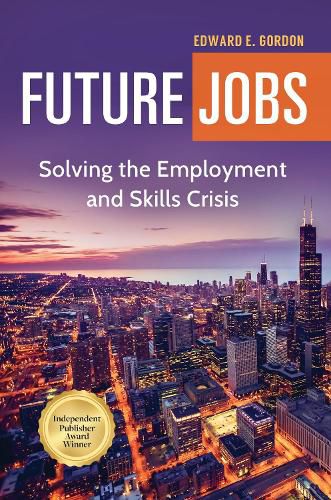Readings Newsletter
Become a Readings Member to make your shopping experience even easier.
Sign in or sign up for free!
You’re not far away from qualifying for FREE standard shipping within Australia
You’ve qualified for FREE standard shipping within Australia
The cart is loading…






A pervasive disconnect exists between the job/career culture and the present economic reality in America. This book offers powerful strategies for stemming the employment crisis and proposes comprehensive solutions for businesses, government, and job seekers alike.
America’s low unemployment rate overshadows the fact that more that 20 million Americans are still unemployed. Moreover, more than eight million jobs are vacant because employers cannot find qualified candidates. It is projected that if this imbalance between available positions and skills is not quickly addressed, more than 14 million jobs will be vacant by 2020, and that many more people out of work.
In Future Jobs, historical economist Edward E. Gordon explains how increasingly complex technologies, global demographic shifts, and outdated education-to-employment systems are converging and may imminently cause a labor-market crisis. How can we ensure that enough people possess the skills necessary to holding the jobs of today and tomorrow? This book points to a solution gaining traction across the United States: Regional Talent Innovation Networks (RETAINs), alliances of businesses, educators, government agencies, and nonprofit organizations that successfully bridge the talent gap. Additionally, it provides information on the most promising jobs and careers of the next decade for early-career job seekers and for workers who are looking to change career paths.
Explains how the current job skills crisis stems from a broad structural failure of the education-to-employment system and has sweeping societal and economic consequences
Identifies the hot jobs of the current decade and the requisite skills and educational preparation needed to obtain them
Describes how digital technology has permanently altered the nature of the U.S. and global job/labor market
Provides information critical to a wide audience: businesses seeking to fill vacant jobs, community organizations and governments trying to attract new enterprises and retain current businesses, educators preparing students for careers, and students and parents concerned about job and career options
$9.00 standard shipping within Australia
FREE standard shipping within Australia for orders over $100.00
Express & International shipping calculated at checkout
A pervasive disconnect exists between the job/career culture and the present economic reality in America. This book offers powerful strategies for stemming the employment crisis and proposes comprehensive solutions for businesses, government, and job seekers alike.
America’s low unemployment rate overshadows the fact that more that 20 million Americans are still unemployed. Moreover, more than eight million jobs are vacant because employers cannot find qualified candidates. It is projected that if this imbalance between available positions and skills is not quickly addressed, more than 14 million jobs will be vacant by 2020, and that many more people out of work.
In Future Jobs, historical economist Edward E. Gordon explains how increasingly complex technologies, global demographic shifts, and outdated education-to-employment systems are converging and may imminently cause a labor-market crisis. How can we ensure that enough people possess the skills necessary to holding the jobs of today and tomorrow? This book points to a solution gaining traction across the United States: Regional Talent Innovation Networks (RETAINs), alliances of businesses, educators, government agencies, and nonprofit organizations that successfully bridge the talent gap. Additionally, it provides information on the most promising jobs and careers of the next decade for early-career job seekers and for workers who are looking to change career paths.
Explains how the current job skills crisis stems from a broad structural failure of the education-to-employment system and has sweeping societal and economic consequences
Identifies the hot jobs of the current decade and the requisite skills and educational preparation needed to obtain them
Describes how digital technology has permanently altered the nature of the U.S. and global job/labor market
Provides information critical to a wide audience: businesses seeking to fill vacant jobs, community organizations and governments trying to attract new enterprises and retain current businesses, educators preparing students for careers, and students and parents concerned about job and career options